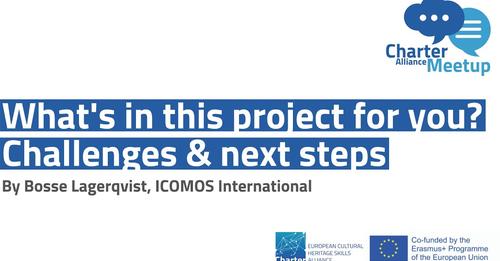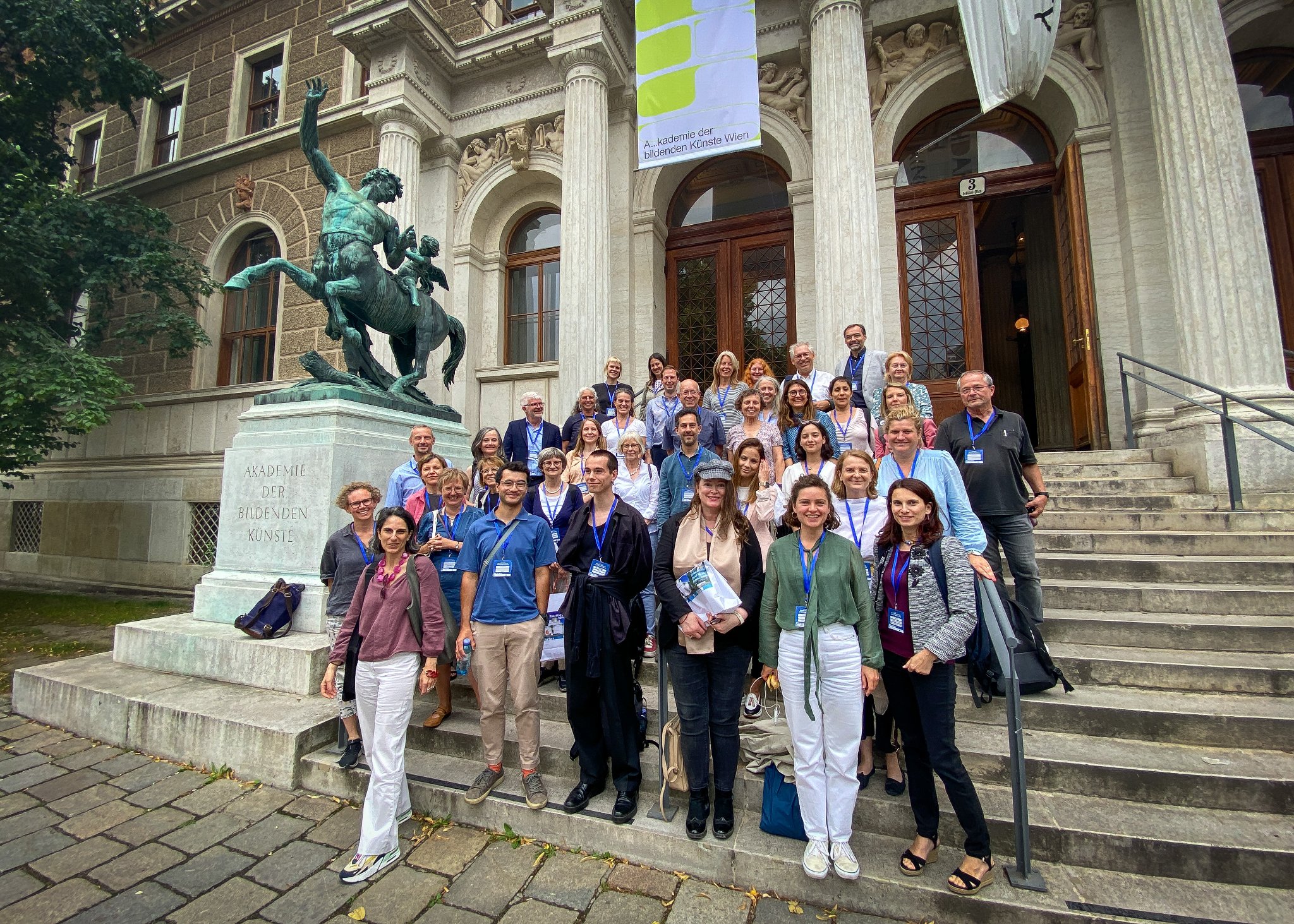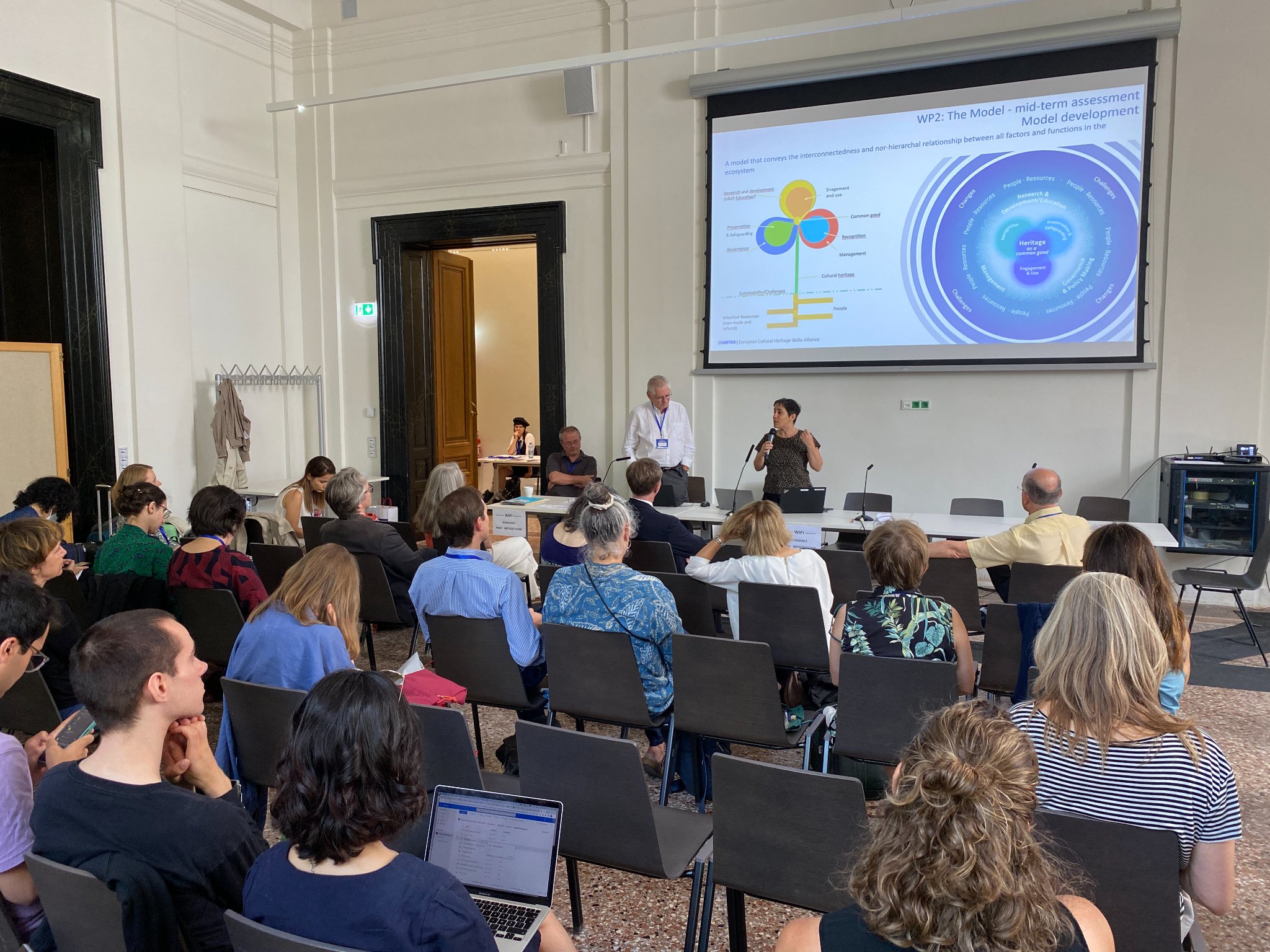CHARTER project: professionalising the European cultural heritage sector
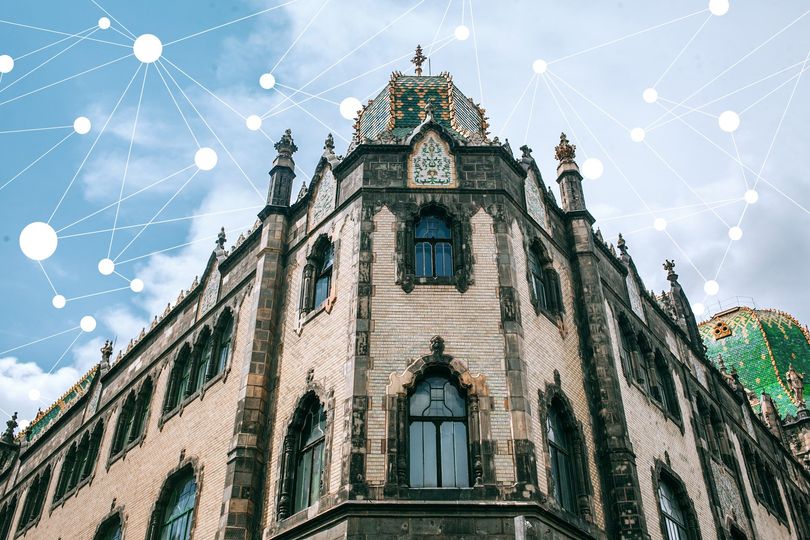 Keep up to date with CHARTER's latest news and next steps!
Keep up to date with CHARTER's latest news and next steps!
CHARTER (Cultural Heritage Actions to Refine Training, Education and Roles), is an Erasmus+ project, which started in January 2021 and will end in December 2024. It is led by a Consortium of 21 full members including ICOMOS and its International Scientific Committee CIF (International Scientific Committee on Training), 7 affiliate partners and 19 associate members from 14 EU states. ICOMOS is proud to be the co-leader of CHARTER’s Work Package 2, together with ECCO (European Confederation of Conservator-Restorers' Organisations).
CHARTER seeks to create a lasting, comprehensive sectoral skills strategy to guarantee Europe has the necessary cultural heritage skills to support sustainable societies and economies, including transversal competences such as digital/technological and green/blue economy skills. To do so, the Alliance will map the needs of the CH sector to identify skills shortages and mismatches in order to develop fitting training programmes for already active CH professionals. The Alliance will also support adaptability within the educational system, with the aim that curricula and learning goals reflect the current and coming needs of the sector. Upskilling of core and transversal skills will be made easy and exchange, capacity building and movement within Europe will be encouraged. All efforts combined will professionalise the sector and CHARTER will showcase that cultural heritage is integral in achieving social, economic and environmental sustainability.
In March 2022, CHARTER held its first webinar, the CHARTER meetup - to discuss the state of play of the heritage sector and introduce some of the key concepts developed in the project. On this occasion, Bosse Lagerqvist of ICOMOS detailed the project’s outcomes, challenges and next steps. His presentation, What's in this project for you?, has been recorded and published.
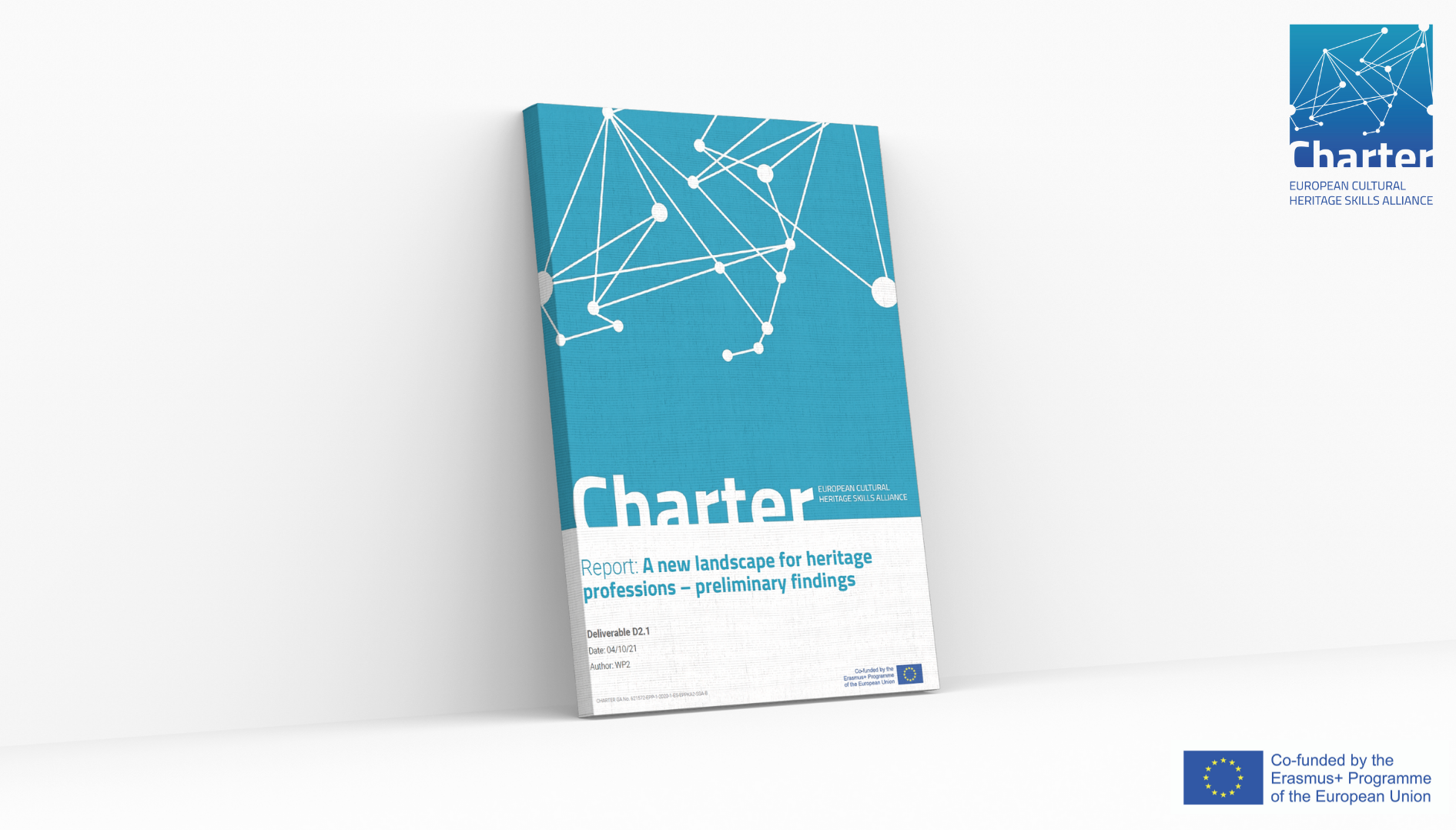 Since the beginning of the project, CHARTER has published two results. The first one, A new landscape for heritage professions – preliminary findings, produced by the Work Package 2,presents a new integrated model of the cultural heritage sector, defining its scope, dynamics and boundaries in relation to existing cultural, statistical, occupational and economic conceptual definitions, policy principles and frameworks. The model reflects the evolving discourse about cultural heritage and is aligned with the concept of cultural heritage as a “shared resource and common good”, which impacts human, economic and social wellbeing.
Since the beginning of the project, CHARTER has published two results. The first one, A new landscape for heritage professions – preliminary findings, produced by the Work Package 2,presents a new integrated model of the cultural heritage sector, defining its scope, dynamics and boundaries in relation to existing cultural, statistical, occupational and economic conceptual definitions, policy principles and frameworks. The model reflects the evolving discourse about cultural heritage and is aligned with the concept of cultural heritage as a “shared resource and common good”, which impacts human, economic and social wellbeing.
The second report, Cultural heritage education & training in Europe –pathways to qualifications, produced by the Work Package 3, features an investigation on how formal and non-formal education and training are transmitted and how these pathways may lead to qualifications for CH jobs and professions.
CHARTER’s Work Package 4 is currently developing its upcoming report on “Mapping dynamics of internal and external stakeholders”. This report will be instrumental to understand the implications of the diverse sector’s dynamics on education and training systems in cultural heritage. An ongoing survey, CHARTER Cultural Heritage Sector Dynamics, will enable the working group to have a full picture of how stakeholders in heritage interact with each other in an effort to map and analyse the dynamic networks that exist and those that can develop further.
In June, the Alliance presented their new Tool for Cultural Heritage professionals: the CHARTER Skills Self-assessment Toolkit. This tool aims to assess skills on the 6 heritage functions of the CHARTER model based on the daily tasks performed by heritage professionals. It can help organisations identify their strengths and weaknesses.
The partners held their first in-person General Meeting from 5-7 July 2022, hosted by the Academy of Fine Arts Vienna. Under the theme “CHARTER: Reaching out to the heritage community”, this meeting aimed to:
- identify gaps and needs in the cultural heritage labour market and consequences for the education and training sector through a series of presentations and break-out sessions;
- have a mid-term assessment of the ecosystem model of cultural heritage proposed by CHARTER’s Work Package 2 and its new developments;
- and present hypotheses and preliminary conclusions arising from the year and a half of intensive work.
The importance of reaching out to the wider cultural heritage community in Europe also underpinned the overall theme of the meeting. The third day was open to external cultural heritage stakeholders and mainly dedicated to external views and positions.
After the summer break, the rest of the year 2022 will be busy for CHARTER. Three regional workshops are planned in Bremen (Germany), Évora (Portugal), and Florence (Italy). The next general meeting is planned in Rome on 28-30 November 2022, with a 1-day conference for external stakeholders on 30 November. Together with the CHARTER Alliance project partners, participants will explore competences and job profiles needed to work with digital cultural heritage. Participation is free of charge and registration will open at the end of September.
You can stay informed by following ICOMOS on Twitter, LinkedIn, Facebook and Instagram.
See also
 CHARTER Alliance’s website
CHARTER Alliance’s website
![]() Launch of CHARTER Alliance to unite and professionalise the European cultural heritage sector
Launch of CHARTER Alliance to unite and professionalise the European cultural heritage sector
![]() Video: 2 minutes to understand the CHARTER project
Video: 2 minutes to understand the CHARTER project
Photo credits © CHARTER Alliance

